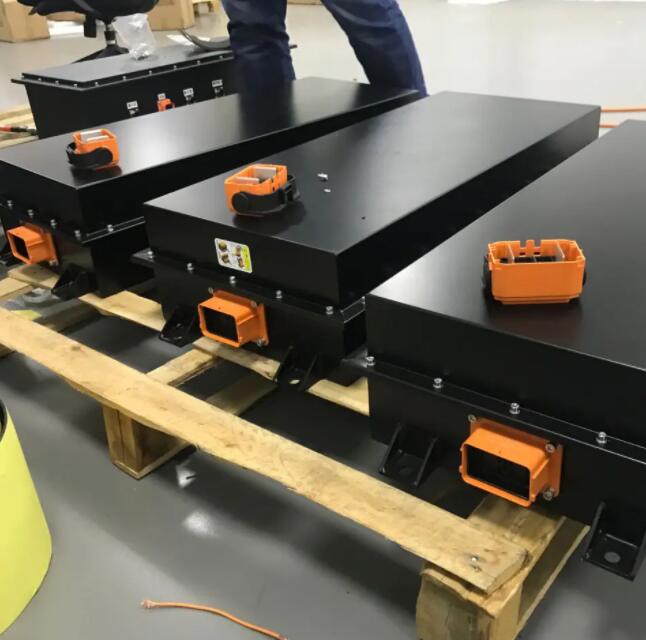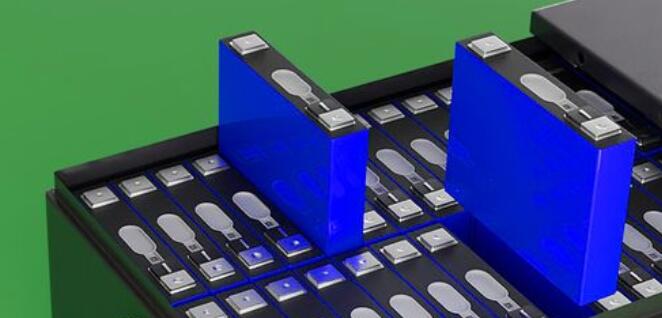Lieferanten von Lithiumbatterien für Elektrofahrzeuge
electric vehicles Lithium battery
Electric vehicles (EVs) typically use lithium-ion batteries as their primary source of energy storage. Lithium-ion batteries are a type of rechargeable battery that have become the preferred choice for EVs due to their high energy density, long lifespan, and relatively lightweight nature compared to other battery technologies.
Here are some key points about lithium batteries in electric vehicles:
Composition: Lithium-ion batteries used in EVs consist of multiple cells, each containing a positive electrode (cathode), negative electrode (anode), and an electrolyte solution. The cathode typically contains lithium compounds, such as lithium cobalt oxide (LiCoO2), lithium iron phosphate (LiFePO4), or lithium nickel manganese cobalt oxide (LiNiMnCoO2). The anode is usually made of graphite.
Energy Density: Lithium-ion batteries have a high energy density, meaning they can store a significant amount of energy in a relatively small and lightweight package. This allows electric vehicles to have longer driving ranges and higher performance capabilities.
Charging and Discharging: Lithium-ion batteries can be charged and discharged efficiently, making them suitable for electric vehicles. They can store energy from the electric grid during charging and deliver it to power the vehicle’s electric motor during discharging.
Range and Performance: The energy density of lithium-ion batteries enables EVs to achieve longer driving ranges compared to other battery technologies. The performance of EVs, such as acceleration and top speed, is also influenced by the power output and efficiency of the battery.
Lifespan: The lifespan of lithium-ion batteries is typically measured in charge cycles, which refers to the number of times a battery can be charged and discharged before its capacity starts to degrade significantly. The lifespan can vary depending on factors such as battery chemistry, usage patterns, temperature conditions, and maintenance. Manufacturers aim to develop batteries with longer lifespans to meet the demands of EV owners.
Safety Considerations: While lithium-ion batteries are generally safe, there have been rare instances of thermal runaway or battery fires. Battery management systems in EVs monitor and control factors like temperature, voltage, and current to ensure safe operation and prevent overcharging or overheating.
Recycling and Sustainability: The recycling of lithium-ion batteries is important to recover valuable materials and reduce environmental impact. Battery manufacturers and researchers are continuously working on improving recycling processes to maximize resource recovery. Additionally, efforts are being made to develop sustainable and environmentally friendly methods for battery production.

Why Choose Lithium Battery For electric vehicles?
Hohe Energiedichte
Lithium-ion batteries have a high energy density, which means they can store a large amount of energy in a relatively small and lightweight package. This allows EVs to have longer driving ranges and higher performance capabilities.
Lightweight
Lithium-ion batteries are lightweight compared to other battery technologies, such as lead-acid batteries. This reduces the overall weight of the vehicle, improving its energy efficiency and handling.
Schnelles Aufladen
Lithium-ion batteries can be charged at a faster rate compared to other battery technologies. This means EVs can be recharged more quickly, providing greater convenience to drivers.
Efficiency
Lithium-ion batteries have a high charge and discharge efficiency, meaning they can convert a large percentage of stored energy into actual power for the electric motor. This translates to better overall energy efficiency and longer driving ranges.
Longer Lifespan
Lithium-ion batteries generally have a longer lifespan compared to other types of batteries used in EVs. They can withstand a higher number of charge cycles before their capacity starts to degrade significantly. This results in reduced maintenance and replacement costs for EV owners.
Environmental Impact
Compared to internal combustion engine vehicles, EVs powered by lithium-ion batteries produce zero tailpipe emissions, contributing to improved air quality and reduced greenhouse gas emissions. Furthermore, lithium-ion batteries can be recycled, allowing for the recovery of valuable materials and reducing environmental impact.
Technological Advancements
Lithium-ion battery technology has been extensively researched and developed over the years, leading to continuous improvements in performance, safety, and cost. Ongoing advancements and investments in lithium-ion batteries for EVs contribute to the overall growth and development of the electric vehicle industry.
While there are other types of batteries available for electric vehicles, such as nickel-metal hydride (NiMH) batteries, lithium-ion batteries currently offer the best combination of energy density, weight, charging speed, efficiency, and overall performance. As a result, they have become the dominant choice for powering electric vehicles and are expected to continue playing a significant role in the future of sustainable transportation.

-
 If you’re looking for a reliable, long-lasting battery to power your devices or equipment, look no further than a 100Ah LiFePO4 lithium battery. This advanced battery technology offers numerous benefits over traditional lead-acid batteries, making it the perfect choice for a wide range of applications. What is a LiFePO4 Lithium Battery? LiFePO4 stands for lithium iron phosphate, which...Weiterlesen
If you’re looking for a reliable, long-lasting battery to power your devices or equipment, look no further than a 100Ah LiFePO4 lithium battery. This advanced battery technology offers numerous benefits over traditional lead-acid batteries, making it the perfect choice for a wide range of applications. What is a LiFePO4 Lithium Battery? LiFePO4 stands for lithium iron phosphate, which...Weiterlesen -
 In der heutigen schnelllebigen Welt ist zuverlässige Stromversorgung ein Muss. Ob bei der Arbeit oder in der Freizeit: Eine zuverlässige Energiequelle ist unerlässlich. Manchmal laufen die Dinge jedoch nicht wie geplant und es kann zu unerwarteten Stromausfällen kommen. Hier bietet sich eine Notstarterbatterie an. Eine Notstarterbatterie ist ein tragbarer Batteriesatz, der Strom liefert, wenn...Weiterlesen
In der heutigen schnelllebigen Welt ist zuverlässige Stromversorgung ein Muss. Ob bei der Arbeit oder in der Freizeit: Eine zuverlässige Energiequelle ist unerlässlich. Manchmal laufen die Dinge jedoch nicht wie geplant und es kann zu unerwarteten Stromausfällen kommen. Hier bietet sich eine Notstarterbatterie an. Eine Notstarterbatterie ist ein tragbarer Batteriesatz, der Strom liefert, wenn...Weiterlesen -
 Low-Speed-Elektrofahrzeuge (LSEVs) sind kompakte Elektrofahrzeuge, die für Kurzstreckenfahrten mit relativ niedrigen Geschwindigkeiten konzipiert sind. Sie werden typischerweise in städtischen Umgebungen, Industriegebieten und auf Campusgeländen zu Transportzwecken eingesetzt. LSEVs sind für ihre geringe Größe, ihre geringen Kosten und ihren umweltfreundlichen Betrieb bekannt. Lithiumbatterien werden aufgrund ihrer hohen Energiedichte, ihres geringen Gewichts und ... häufig in Elektrofahrzeugen mit niedriger Geschwindigkeit verwendet.Weiterlesen
Low-Speed-Elektrofahrzeuge (LSEVs) sind kompakte Elektrofahrzeuge, die für Kurzstreckenfahrten mit relativ niedrigen Geschwindigkeiten konzipiert sind. Sie werden typischerweise in städtischen Umgebungen, Industriegebieten und auf Campusgeländen zu Transportzwecken eingesetzt. LSEVs sind für ihre geringe Größe, ihre geringen Kosten und ihren umweltfreundlichen Betrieb bekannt. Lithiumbatterien werden aufgrund ihrer hohen Energiedichte, ihres geringen Gewichts und ... häufig in Elektrofahrzeugen mit niedriger Geschwindigkeit verwendet.Weiterlesen -
 Introduction: In recent years, communication base stations have become an integral part of our daily lives. These stations are responsible for transmitting and receiving signals for various communication networks, including mobile phones, television, and internet services. To ensure uninterrupted and reliable communication, it is essential to have a robust power backup system in place. Lithium batteries have emerged as...Weiterlesen
Introduction: In recent years, communication base stations have become an integral part of our daily lives. These stations are responsible for transmitting and receiving signals for various communication networks, including mobile phones, television, and internet services. To ensure uninterrupted and reliable communication, it is essential to have a robust power backup system in place. Lithium batteries have emerged as...Weiterlesen -
 The demand for clean and sustainable energy sources has been on the rise in recent years due to growing concerns about climate change and the need to reduce greenhouse gas emissions. As a result, the development of efficient and reliable energy storage systems has become a key focus of research and innovation. Among the various technologies available, lithium batteries have...Weiterlesen
The demand for clean and sustainable energy sources has been on the rise in recent years due to growing concerns about climate change and the need to reduce greenhouse gas emissions. As a result, the development of efficient and reliable energy storage systems has become a key focus of research and innovation. Among the various technologies available, lithium batteries have...Weiterlesen -
 Lithium batteries have become increasingly popular in recent years due to their high energy density, long life span, and low self-discharge rate. They are commonly used in various electronic devices, such as smartphones, laptops, and electric vehicles. However, in some cases, a single lithium battery may not provide enough voltage to power a device, and multiple batteries need to be...Weiterlesen
Lithium batteries have become increasingly popular in recent years due to their high energy density, long life span, and low self-discharge rate. They are commonly used in various electronic devices, such as smartphones, laptops, and electric vehicles. However, in some cases, a single lithium battery may not provide enough voltage to power a device, and multiple batteries need to be...Weiterlesen -
 As the world becomes more reliant on technology, the need for efficient and long-lasting energy sources has become increasingly important. Lithium-ion batteries have emerged as a leading solution for powering a wide range of electronic devices, from smartphones to electric vehicles. The latest advancement in this technology is the Lithium Iron Phosphate (LiFePO4) battery, which offers even greater reliability and...Weiterlesen
As the world becomes more reliant on technology, the need for efficient and long-lasting energy sources has become increasingly important. Lithium-ion batteries have emerged as a leading solution for powering a wide range of electronic devices, from smartphones to electric vehicles. The latest advancement in this technology is the Lithium Iron Phosphate (LiFePO4) battery, which offers even greater reliability and...Weiterlesen

